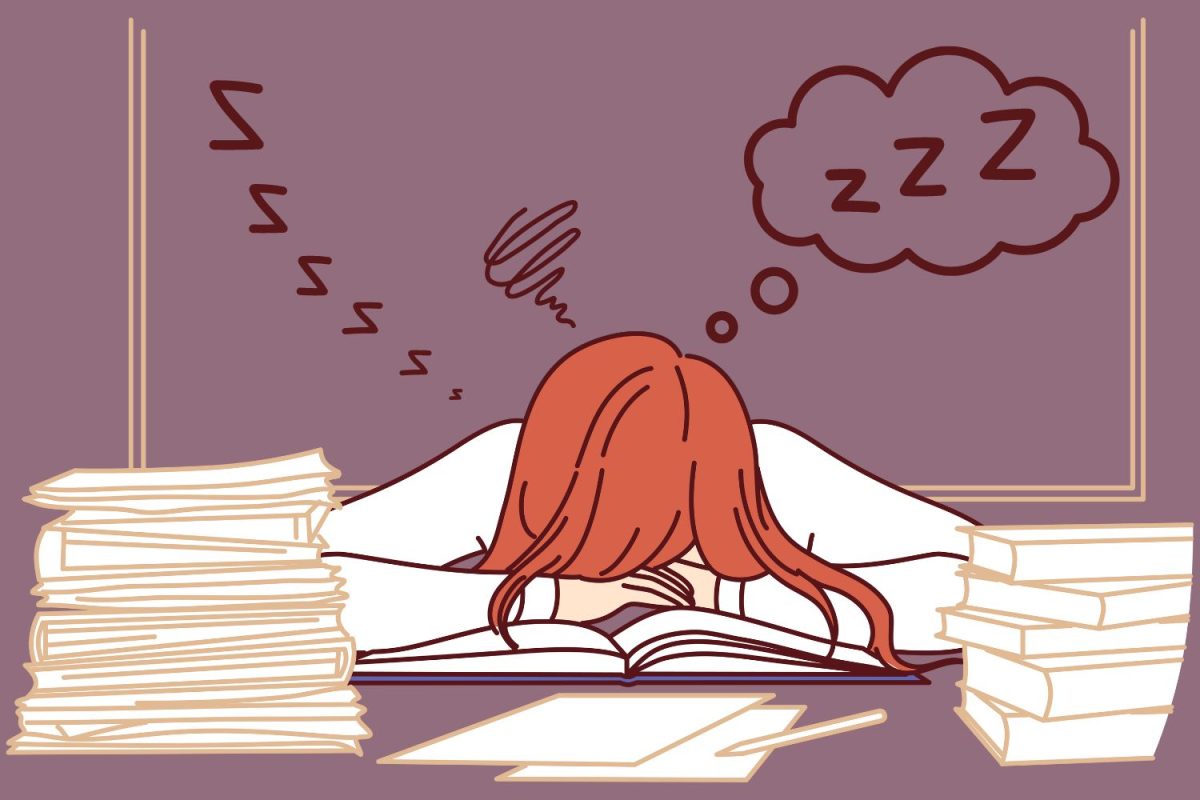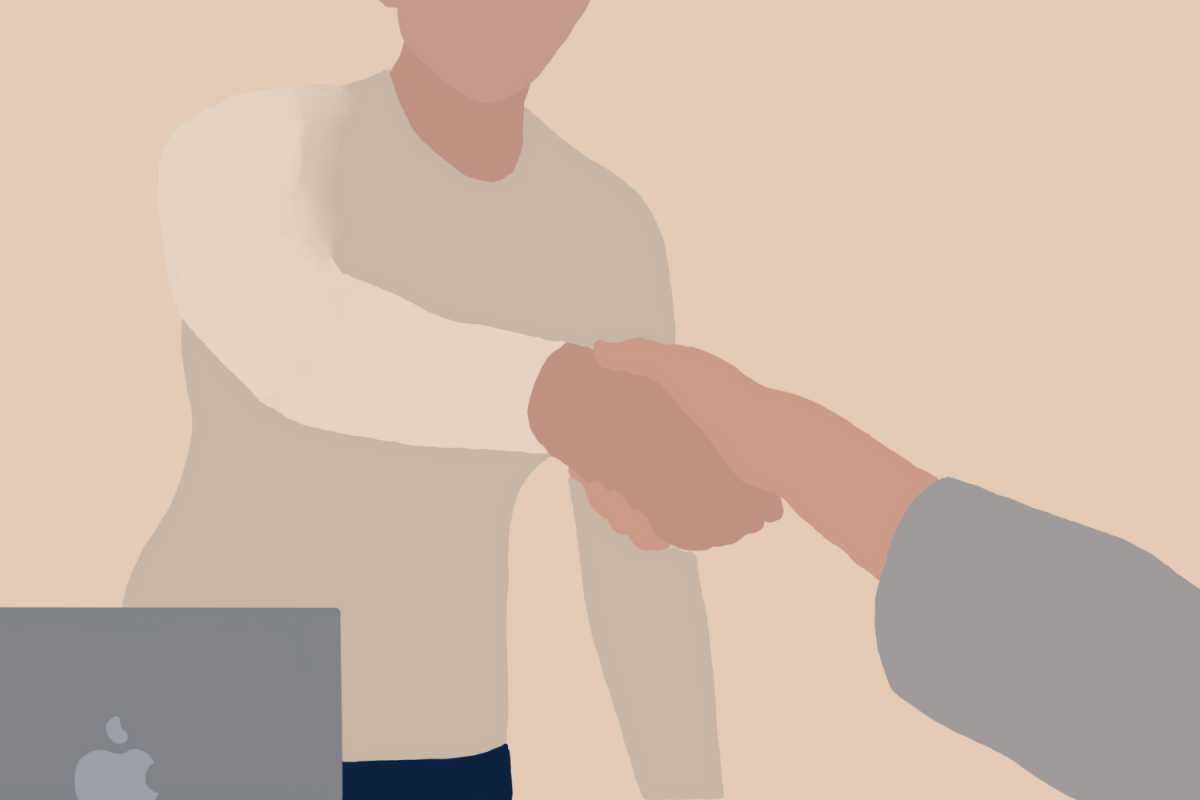*Names with an asterisk signify that the source chose to remain anonymous for privacy reasons.
Betty* checked her phone excitedly – she hadn’t talked to him in awhile. “I miss you” flashed across her screen. Betty smiled and opened her phone, eager to respond. But, as she began to type her response, another message appeared: “I miss your boobs*” came the second message, the asterisk a crude device of flirtation.
“It made me feel like they didn’t care about me as a human being, and they were just looking at me as an object, that they didn’t actually care about talking to me or speaking to me,” Betty said, still visibly shaken by the experience a year after the fact.
This is just one of many occasions where Betty has felt objectified, by both male and female friends. For her, it is these lighthearted and casual comments – oftentimes intended as jokes like, ‘Oh, your ‘eyes’ looks so good today’ while the commenter is clearly insinuating about her chest – that hit home the hardest. “I think [objectification] definitely [occurs] at ASL, and I think people sometimes don’t really realize it as much because it’s often used in a funny or joking way,” Betty said. “People laugh it off and are like, ‘oh, that’s so funny’, and I laugh at them too, but I think it is a problem and people don’t realize it because it is a joke.”
At the beginning of this year the anonymous social network, Yik Yak, was the source of much debate for the ASL community until it was eventually banned by the administration. For some, Yik Yak was a medium for lighthearted and satirical comments while for others it was a unchecked forum for derogatory objectification. One such student is Rose* who, along with the struggles of being a new student, was faced with comments about her and her sisters bodies. “[In] the first couple weeks of school, suddenly being new and having so many comments on Yik Yak about me and my sister’s boobs. Nobody knew who I was and suddenly that was just all that was known about me; that wasn’t fun.”
And it wasn’t just Rose. Others, mostly girls, faced comments about all aspects of their body and their appearance. “Most of the derogatory stuff or negative stuff was about girls’ bodies,” Rose said. “You didn’t get that type of thing about the boys.”
While Rose believes casual objectification can happen to men, history has made it such that in most scenarios, it is women that are being objectified. “Historically men have had a superior role in society, men were always perceived for their intellect, while the women were supposed to be in the home, cultural domesticity, the ‘good wife’,” Rose said.
While, within society as a whole, Rose cites the media as a perpetuator of this behaviour, she believes the root of the normalization stems from historical gender dynamics. “Women were judged on their appearances whereas men were judged on their achievements,” she said. “I think we are shifting but we still do have this issue where women’s achievements come second to their appearance where men’s achievements come first.”
Yet Rose sees signs that the tide – in a period where these issues are at the forefront of global awareness – might be finally turning. The media, it seems, isn’t all bad. It is the things like “The Dove campaigns, Emma Watson [and] George Clooney’s new wife [Amal Clooney],” examples of where gender roles are challenged, that give her hope. “There is a media storm going on over this issue, a lot is being done, but we really have [to] keep progressing, [we] have to keep moving away from that [culture of objectification],” she said.
It’s hard to deny, at least in Betty’s opinion, that these “casual” comments have more-than casual effects for the individuals on the receiving end. “A lot of times [the comments] will make you feel uncomfortable around people or make you feel very embarrassed,” Betty said. “[It makes you feel] like you don’t really want to go out and be adventurous and confident.”
For Counselor Stephanie Oliver, objectification stems from not viewing others as people. [It’s when] you don’t see the whole person, you don’t think about their experiences, that they’ve experienced the same type of pain that you’ve experienced, that they have a family and a life and that they deserve respect.”
Although Rose believes that, as one grows older, the comments have less of an effect due to a more developed sense of self, she experienced confidence-stunting when she was younger. “I think middle school is where I – and most girls – felt most objectified, especially because girls are going through puberty and being looked at for your body becomes very uncomfortable and becomes very difficult,” Rose said. “I don’t think we realize how boys snickering in the hallway in middle school can really make a girl feel self conscious and affect her self esteem in coming years.”
Rose’s earliest memory of this potentially long-lasting objectification was in Grade 7. At a time when many girls were going through puberty, a few guys in her grade decided to make a game of it: When a girl started to go through puberty, the boys would start guessing how long it would take for their chest to develop. “They had a special handshake for when a girl would get boobs and they called it ‘overflowing’,” Rose said. “I remember so clearly, wearing a tank top with a sweater over it, seeing these two guys doing this handshake and saying ‘Oh, Overflowing! F**k yeah’, and just curling into my sweater because I felt so uncomfortable.”
While this casual objectification is far from a “one-way street,” Rose believes it is most rampant with girls, be that guys objectifying them or even girls being objectified by other girls. “Girls tend to put each other down in order to feel okay. And that’s a very broad generalized statement, but that is something that happens more and more,” Rose said. “Often it is said that ‘girls aren’t dressing up for boys, they are dressing up for other girls’.”
As Oliver put it, girls can “police each other in different ways. It all comes from that sort of adhering to the dominant norms that women need to look a certain way and be a certain way, and when someone doesn’t fall into that category, they’re going to try and get them to be in that category,” she said.
By Rose’s definition, objectification is “when someone is perceived or talked about by their appearance or something which is not their inherent personality or who they are. It’s sort of a label that is given to them.”
This labelling is what many consider one of, if not the most damaging pillars casual objectification. “One thing I’ve heard that guys say a lot, is about how ASL girls are so prude,” Rose said. “But at the same time when there is a girl who isn’t self conscious, or people know about her sexual appearances, she is labelled as a ‘slag’. Either you’re a prude, a slut or a slag… you are going to get [a] label.”
A tri-sport athlete, Cameron McClure (’15) has spent countless hours on bus rides and, as naturally came with the camaraderie of his teams, countless hours listening to his teammates talk about girls. “You hear guys bragging about what they did over the weekend, who they hooked up [with], or their history of hooking up with people,” McClure said. “Sure that’s all fun and games, but when you think about it that’s really degrading: Treating women as sexual objectives.”
Although McClure believes that, at ASL, no culture of deliberately marginalizing women exists, there is a regular, more subtle layer of objectification. “It’s the things that we don’t notice as much… where [the objectification occurs],” McClure said.
Specifically, it is the party culture where McClure feels objectification is the most rampant. “I feel like party culture is where it really comes up. The “slut” term. Guys bragging about what they did, who they did,” McClure said. “Objectification does happen but [people] are not outgoingly saying that ‘women should be sexual objects,’ we follow the social norms and it’s just kind of accepted.”
Betty has also seen a discrepancy between males and females within the party culture at ASL. “There’s this double standard with hooking up, where guys will brag about it, and then girls who have hooked up with a lot of guys, people are like ‘oh, she’s a slut’,” she said.
For McClure, much of the degrading interaction between boys and girls has become commonplace in society. “It’s part of societal norms; people don’t really think twice about it they just do it,” McClure said.
Because of the way these norms have been ingrained, McClure finds that they are no longer questioned. “It’s integrated into our society, I guess the way that we think things are meant to be. Guys are played off as more sexually driven and we just accept that,” McClure said. “So, guys can look at girls, usually more sexually and as objects.”
This, McClure added, is representative of a society-wide trend as people are becoming more and more desensitized to the hyper-sexualization of women. “We don’t think twice about it,” McClure said. “If we see a naked girl on a billboard, it’s ‘normal’, it’s the way it’s ‘meant to be’.”
In her experience, Betty believes that this cycle is fueled by a reluctance to speak out against what is considered “normal” behaviour. “If someone says a comment or if someone is making you feel uncomfortable, what a lot of people do is they run away from it and hide from it,” she said.
In order for society to reverse the tide of “ingrained” casual objectification, McClure believes that awareness is key. “The first step and one of the biggest steps is recognizing it. Getting the word out there, and making people think twice when they say something or they do something, when they label a girl in a certain way, even within their friends, it will eventually have an effect on that girl,” McClure said.
Because of this effect, Rose thinks that everyone needs to be aware about this issue in order for change to occur. “We all need to support each other on this, and girls perpetuating this objectification is equally as bad a boys perpetuating this objectification,” she said.
Betty also believes that telling people when they’ve made a hurtful comment is the key to changing this ingrained culture. “I think that what we should be doing is start saying, ‘don’t talk to me like that, don’t say that to me’ because I think that’s the only way that people will realize,” Betty said. “I think we just need to take away the casual nature [and] not just laugh it off.”







